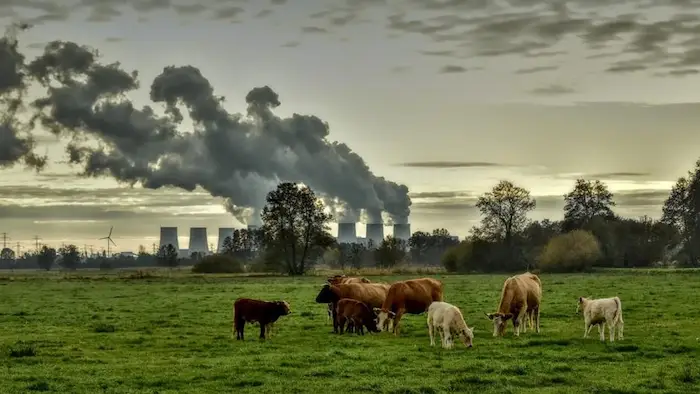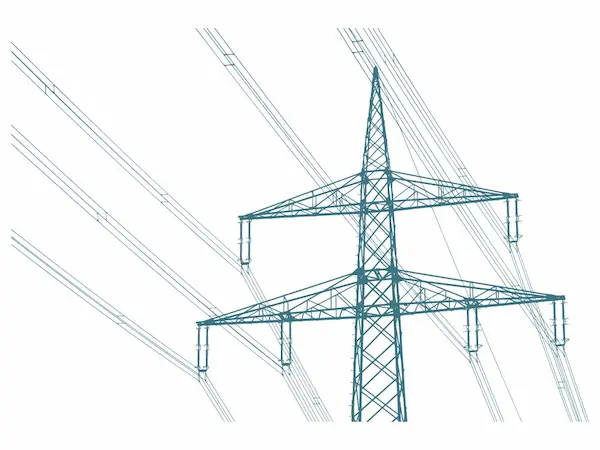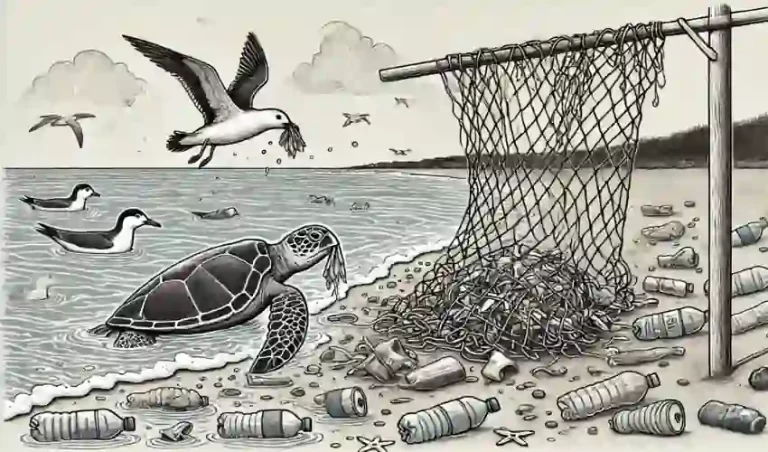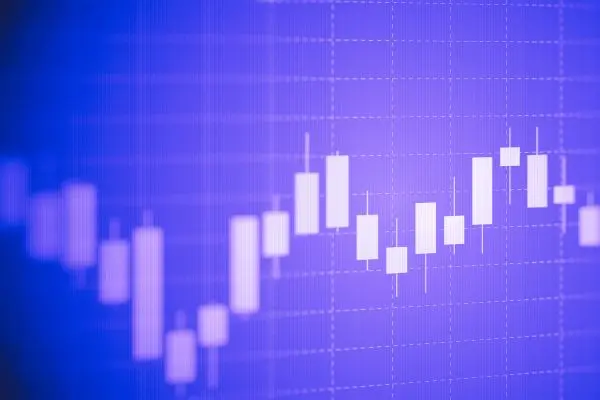CPD Tips and Trends for Sustainability Professionals
In the rapidly evolving field of sustainability, professionals must stay up-to-date with the latest trends and best practices.
Effective Continuing Professional Development (CPD) enables this, ensuring that sustainability experts remain effective and knowledgeable in their roles.
Here we’ll explore five of the most popular sustainability career fields, highlighting the key emerging CPD trends for each. We’ll also then cover key emerging fields to take into consideration when planning your CPD.
Career Field: Sustainability Consultancy

Sustainability consultants play a pivotal role in helping organisations develop and implement sustainable practices. They provide independant expertise and support to a range of different industries.
Here are five emerging CPD trends for this profession:
1. Circular Economy
Training on implementing circular economy principles is becoming increasingly vital.
This involves designing products and processes that minimise waste, keeping materials in use for as long as possible, and regenerating natural systems. Consultants should to capable of advising clients on adopting these principles to achieve sustainability goals.
2. Sustainable Finance
Understanding green finance and its link to ESG (Environmental, Social, and Governance) criteria continues to grow in importance.
We recommend your CPD focus in this area covers building expertise in sustainable investment strategies, integrating ESG factors into financial decision-making, and accessing green finance opportunities.
3. Climate Risk Management
With the impact of climate change growing, demand for tools and methodologies to assess and manage climate-related risks will become essential.
Sustainability consultants CPD should incorporate training on how to help organisations identify, evaluate, and mitigate these risks to ensure long-term resilience.
4. Net-Zero Strategies
Developing pathways for clients to achieve net-zero emissions is a critical area of expertise.
High quality expertise include understanding carbon accounting, implementing reduction measures, and utilising offsetting mechanisms to balance remaining emissions. Beyond this, the capability to identify co-benefits that enhance the case for net-zero are also key.
5. Sustainability Reporting
Skills in preparing comprehensive sustainability reports remain essential.
CPD in this area covers the latest reporting frameworks and standards, such as GRI (Global Reporting Initiative) and SASB (Sustainability Accounting Standards Board), ensuring transparency and accountability. Check out our summary of key sustainability standards for further insight on reporting.
Career Field: Environmental Management

Environmental managers oversee the broad remit of an organisation’s environmental performance and ensure compliance with regulations.
The following CPD trends are emerging for the environmental management field:
1. Environmental Compliance
Staying up-to-date with local and international environmental regulations is crucial.
CPD courses in this area cover new legislation, compliance strategies, and best practices for maintaining regulatory adherence. Professional bodies such as IEMA, CIWEM or The IES are great sources for this form of CPD.
2. Waste Management
Advanced techniques for waste reduction and recycling are essential for minimising environmental impact.
Environmental managers should maintain awareness of innovative waste management solutions, including zero-waste initiatives and circular economy practices.
3. Renewable Energy Integration
Training on integrating renewable energy solutions within operations is becoming more important.
This includes understanding the latest technologies, evaluating feasibility, and implementing renewable energy projects to reduce carbon footprints.
For large scale renewables, there are also integration opportunities with biodiversity enhancement, referenced below.
4. Pollution Control
Pollution prevention continues to be a difficult challenge in Environmental Management. Maintaining awareness of innovations in monitoring and controlling pollution are critical for protecting the environment and public health.
Your CPD in this area should covers new technologies and methods for tracking, and reducing, air, water, and soil pollution. Sewage pollution and urban air pollution are examples of growing challenges in the field.
5. Biodiversity Management
Strategies for preserving and enhancing biodiversity in projects are increasingly relevant. The rise of Biodiversity Net Gain regulations, particularly within the UK, has further heightened this relevance.
Environmental managers need to understand habitat conservation, species protection, and ecosystem restoration to mitigate biodiversity loss. This includes the growing need to understand the principles and value of Nature Based Solutions, as well as topics such as Urban Rewilding.
Career Field: CSR Management

CSR management involves responsibility for developing and implementing strategies that ensure organisation operate in a socially responsible manner. Here are five emerging CPD trends for CSR managers:
1. Stakeholder Engagement
Techniques for effectively engaging with stakeholders and communities continue to be essential. But remember, communication routes and stakeholder outlook continuously evolves.
Pursue CPD to enhance your methods for identifying and communicating with key stakeholders, building partnerships, and addressing their concerns.
2. Ethical Leadership
Training on ethical decision-making and leadership in sustainability is becoming more important. In fact, its one of the skills we highlight in our post covering Key Skills For Sustainability Job Success.
This includes understanding ethical decision making frameworks, promoting a culture of integrity and sensitivity, and leading by example.
3. Impact Measurement
Methods for measuring and reporting social and environmental impacts are crucial.
Focus your CPD on building capabilities for evaluating the effectiveness of CSR initiatives and demonstrating value to stakeholders.
There are many tools and metrics available on the market to support CSR reporting. Advancing your evaluation capabilities will, should you choose to use supporting tools, help ensure you carry out robust assessment before making any commitments.
4. Sustainable Supply Chain
Ensuring sustainability throughout the supply chain is a key focus.
This involves training on sustainable procurement practices, supplier engagement, and addressing social and environmental risks in the supply chain.
If you are going to measure supply chain emissions to support your CSR strategy, then be sure your clear on what Scope 3 emissions actually are (our guide to emission scope basics can help).
Also make sure you take the time to understand the specific challenges of the supply chains that support your organisation.
5. CSR Strategy Development
Skills in developing and implementing comprehensive CSR strategies themselves are in high demand. They cover a wide range of potential considerations, so getting the strategic balance right is challenging.
Seek out CPD course that cover best practice for integrating CSR into business operations, setting goals, and measuring progress.
Career Field: Renewable Energy

Renewable energy specialists focus on developing and implementing renewable energy projects. Here are five emerging CPD trends for these professionals:
1. Solar Energy Technologies
Advances in solar panel efficiency and installation techniques remain crucial.
You should aim to join regular CPD courses and resources covering the latest developments in photovoltaic technology, system design, and maintenance practices.
2. Wind Energy Innovations
Training on the latest wind turbine technologies and offshore wind farms is essential.
This includes understanding advancements in turbine design, site assessment, and project management for onshore and offshore installations.

3. Energy Storage Solutions
Use of energy storage at scale is advancing rapidly. Understanding new developments in battery and energy storage systems is will be critical for ensuring reliable and efficient renewable energy supplies of the future.
CPD to target in this area covers emerging storage technologies, grid integration, and AI supported energy management.
4. Grid Integration
Skills covering integration of renewable energy sources into the existing grid are increasingly important. Energy grids is many countries and regions are strained as power demand from modern technology grows.
Training focused on the role of smart grid technologies, demand response strategies, and grid stability will prove beneficial to you for years to come.
5. Policy and Incentives
Knowledge of government policies and incentives for renewable energy is vital.
Target CPD covering the latest regulatory frameworks, subsidy programs, and market mechanisms that support renewable energy adoption.
Career Field: Sustainable Supply Chain Management

Sustainable supply chain management is a rapidly growing field. Experts in this field are responsible for ensuring the supply chain operates in an environmentally and socially responsible manner.
Here are five emerging CPD trends for these professionals:
1. Green Procurement
Strategies for procuring sustainable materials and products are essential.
CPD courses covering best practices for sourcing eco-friendly products, evaluating supplier sustainability, and reducing environmental impact will prove highly beneficial.
2. Supply Chain Transparency
Technologies and practices for improving supply chain transparency are increasingly important.
This includes training on blockchain, traceability systems, and reporting tools to ensure visibility and accountability.
3. Life Cycle Assessment
Training on conducting life cycle assessments (LCA) to minimise environmental impact is crucial. Use of LCA is being integrated into areas ranging from product design, through to decarbonisation of supply routes and minimising biodiversity impact.
CPD in this area should cover methodologies for evaluating the environmental footprint of products and processes, from cradle to grave.
4. Ethical Sourcing
Ensuring fair labour practices and ethical sourcing of materials is a key focus.
This involves understanding human rights standards, supplier audits, and ethical certification programs. Compliance programmes such as SEDEX and EcoVadis are both useful tools to understand in this arena.
5. Sustainable Logistics
Innovations in reducing the carbon footprint of logistics and transportation continue to grow, particular as EV and other alternative green fuels advance rapidly.
CSD in the sustainable supply chain field must keep up to date with these logistics innovations. Cover green logistics strategies, low-emission transportation options, and supply chain optimisation in your plan.
Emerging Sustainability Job Fields

To ensure your CPD successfully prepares you for future developments, we recommended you maintain awareness of the job fields emerging as the green economy grows. Below is 5 of these growing fields to know:
CPD: Preparing You For The Future

As the field of sustainability continues to evolve, so too must the skills and knowledge of professionals within it.
The CPD tips & trends we’ve highlighted here reflect the dynamic nature of sustainability work, emphasising the need for ongoing education and adaptation.
By staying current with these trends, sustainability professionals can enhance their impact, drive innovation, and contribute to a more sustainable future.
Hopefully this post will have given you some inspiration for planning your upcoming CPD! We also recommend you check out our guide to the Key Skills For Sustainability Job Success, where you will find useful insights into the broader capabilities you should also aim to develop to progress your career.
Lastly, let us know about your CPD tips and the trends you’re seeing, using the comments section below. We’d love to hear your insights!







